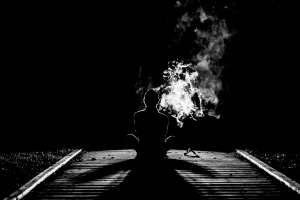
Churches in the cities of Portland, Seattle, and Vancouver some times refer to their cities as “godless.” But are they?
While these cities show little interest in “religious” institutions, they continue to demonstrate an intense and growing passion for “spiritual experiences.” Whether their spiritual experiences occur in musical concerts, yoga studios, art galleries, meditation centers, aromatic coffee shops, sporting events, or wilderness retreats, the spiritual (but not religious) lives of Cascadia are clearly vibrant and active.
If there is such a thing as “Cascadian spirituality,” one of its central characteristics is that it is experiential and sense-based. Their longing for meaning, purpose, and beauty is connected to sight, sound, smell, and touch. This is a problem from churches who think about faith primarily in terms of Christian ideas and institutions, or who think of Sunday morning simply as a time of “teaching.”
Cascadian spiritual experiences often involve bodily movement, visual enchantment, and nature-based awe. People living in our region don’t often look for intellectual “answers” in religious institutions or ideas. Their search begins with a longing for beauty, wonder, adventure, and experience.
These sensory-based spiritualities present a direct challenge to Christian churches who see themselves as established institutions defending systems of religious ideas. Furthermore, for churches wishing to connect the gospel of Jesus Christ with these sensory-based spiritualties, the questions of vivid worship, artistic innovation, and the Christian imagination is no longer a luxury – it’s an absolute necessity.
This is why we at Christ & Cascadia are excited to invite you to join us in February for the Cascadia Worship and Arts Conference. In its third year, the conference serves as a space for conversation, exploration, and worship – geared toward expanding creativity in the Church for the sake of Cascadia. We also encourage you to check out our link to a number of incredible faith and arts organizations in Cascadia.
Can we reimagine what worship looks like in Cascadia? Help us create communities that experience the goodness of the Gospel for our region.
